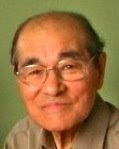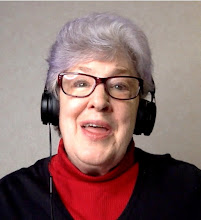
In my continuing efforts at “clutterbusting” and creating more space in my life, a book suggested by a friend,
Organizing from the Inside Out by
Julie Morgenstern, has gotten me well on my way to at least the first of the 3 steps she advises:
analyze,
strategize, and
attack.
Morgenstern suggests that the actual causes of clutter occur on 3 levels:
LEVEL 1:
Technical ErrorsLEVEL 2:
External RealitiesLEVEL 3:
Psychological ObstaclesShe lists the six most common
Technical Errors (pp. 16-17) as being:
Error #1: Items Have No Home
Error #2: Inconvenient Storage
Error #3: More Stuff than Storage Space
Error #4: Complex, Confusing System
Error #5: “Out of Sight, Out of Mind”
Error #6: Organizing Is Boring
In that final area, “the problem is, very few people put much thought into the aesthetics of their organizing system. They view storage as purely utilitarian, and buy any old container whether it appeals to them or not, saying, 'Gee, no one will see this stuff but me. Who cares what it looks like?' As a result, their organizing system is boring, uninspiring, and ugly to use. . . . Don't underestimate the power of pizzazz!” (pp. 17-18)
The areas of
External Realities (pp. 19-22) to consider are:
#1: Unrealistic Workload
#2: Speed of Life/Technology
#3: In Transition (including such areas as moving, marriage, new baby, starting school, graduating from school, retirement, illness or death of a loved one, job search, business merger, business growth spurt, career change – and if you’re going through one or more of these, “it may be best to wait until you have a clearer picture of your new priorities and needs before starting to organize . . . or set up a temporary system.” p. 21)
#4: Uncooperative Partners
#5: Limited Space [a serious problem for those of us who live in Japan]
In the area on
Psychological Obstacles, Morgenstern has a set of yes/no questions “to find out if you have some hidden investment in staying disorganized,” (p. 23) as follows:
1. Does the idea of a spare, clutter-free environment make you feel anxious or uncomfortable?
2. Are you a highly visual person?
3. Do you habitually buy things in large quantities?
4. Does the prospect of getting rid of anything disturb you?
5. Do you love displaying everything you collect so you can look at it?
6. Are you constantly buying more and more cubbies, containers, and baskets to hold everything?
7. Do you harass yourself all day long with the mantra, “I’ve got to get organized, I’ve got to get organized?”
8. Do you spend more time organizing and reorganizing than working or having fun?
9. Do you frequently turn down social activities to stay home and get organized?
10. Are you constantly rearranging your stuff, never satisfied with the system you set up?
11. Are you afraid getting organized might squelch your activity?
12. Does the prospect of being truly organized fill you with simultaneous feelings of excitement and an accompanying dread?
13. Do you think disorganization has always been your primary obstacle to reaching your full potential?
14. Were you more organized at an earlier time in your life?
15. Does your disorganization keep you from delegating work to others?
16. Does the cluttered state of your home or office keep you from letting people visit?
17. Did you grow up in extremely chaotic household?
18. Did you grow up in an extremely orderly household?
19. Did you have a traumatic childhood?
20. Does your accumulated clutter go back fifteen years or more?
21. Are you a high achiever who must do everything perfectly?
Morgenstern suggested that “If you answered ”yes“ to three or more questions, a psychological obstacle is likely working against you.” (p. 24) [Yikes! I answered “Yes” to EIGHT of these!]
Here are what she lists as major
Psychological Obstacles (pp. 24-33):
#1: Need for Abundance
#2: Conquistador of Chaos
#3: Unclear Goals and Priorities
#4: Fear of Success/Fear of Failure
#5: Need to Retreat
#6: Fear of Losing Creativity
#7: Need for Distraction
#8: Dislike the Space
#9: Sentimental Attachment
#10: Need for Perfection
As I embark on my year of decluttering and creating space in my life, I'm ready for a serious look at some of the psychological obstacles I've been facing. In my “need for perfection” (#10), at the moment I'm experiencing a foreboding “fear of failure” (#4). However, I have no fear of losing creativity, but rather expect that changing how I use my time and space will open the way for even more creativity that now lies buried under clutter (in both my head and my apartment).
Anyone wanna become my (de)Clutter Buddy?
Note: Oprah's site on Home Organizing Tips contains links to discussions and articles by Julie Morgenstern and numerous other authors/broadcasters. More advice from Julie Morgenstern can be found at: Get Organized Now with Julie Morgenstern.





















